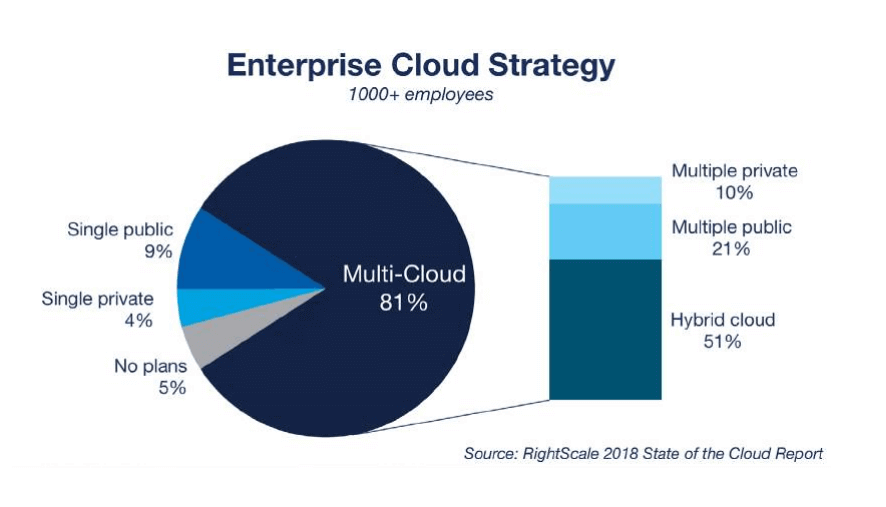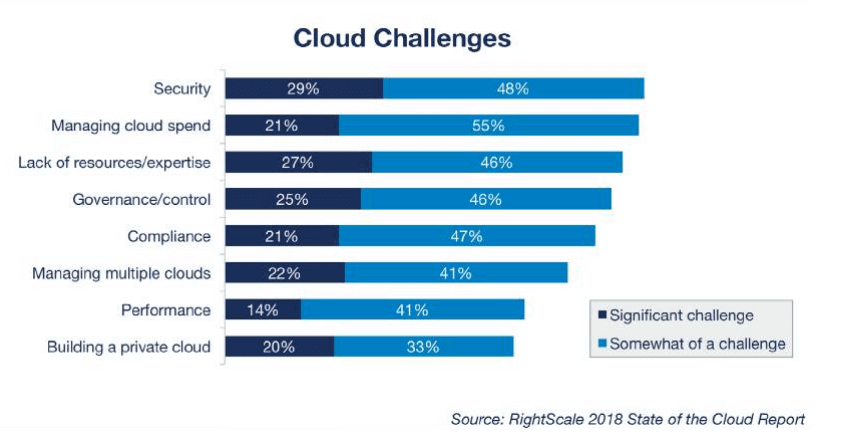云計(jì)算中的當(dāng)前稅務(wù)問題Current Tax Issues in the Cloud
Proper sales tax compliance can be daunting for any business, but the complexities increase when dealing with the software and technology industries in particular. By now, everyone is familiar with the “cloud,” and most companies and individuals utilize “software as a service” (SaaS) in some capacity, likely daily, whether for business, personal use, or both. Taxation of cloud computing, however, remains very much a source of confusion and angst for vendors, consumers, CPAs, auditors, and tax preparers.
保證銷售稅遵從度的適當(dāng)性對任何企業(yè)來說可能是令人望而生畏的,但在處理軟件和技術(shù)行業(yè)時(shí),復(fù)雜性會(huì)增加更多。現(xiàn)在每個(gè)人都對“云”很熟悉,大多數(shù)公司和個(gè)人都在某種程度上使用“軟件即服務(wù)”(software as a service, SaaS),很可能每天都在使用,無論是用于商業(yè)還是個(gè)人用途,或兩者兼而有之。然而,云計(jì)算的征稅問題仍然是供應(yīng)商、消費(fèi)者、注冊會(huì)計(jì)師、審計(jì)人員和稅務(wù)人員的困惑和焦慮的根源。
As a preliminary matter, it is helpful to review five foundational sales tax concepts. First, sales of tangible personal property (generally speaking) are broadly taxable. Second, sales of services (generally speaking) are narrowly taxable, meaning services must be specifically enumerated by statute before they are subject to tax. Third, most states (generally speaking) define tangible personal property to include non-custom software, which would otherwise be considered an intangible. Fourth, for a transaction to constitute a sale, a transfer of title or possession for consideration is required. Fifth, some states in effect treat the sale of SaaS as the taxable transfer of possession of software, a tangible product, rather than as the sale of a nontaxable service.
首先,回顧一下五個(gè)基本的營業(yè)稅概念是有幫助的。首先,有形個(gè)人財(cái)產(chǎn)的銷售一般來說都要納稅。第二,服務(wù)的銷售(一般來說)是狹義應(yīng)稅的,這意味著服務(wù)在征稅前必須是在相關(guān)法令具體列舉的項(xiàng)目里。第三,大多數(shù)州(一般來說)將有形個(gè)人財(cái)產(chǎn)界定為包括非定制軟件,否則將被視為無形財(cái)產(chǎn)。第四,對于構(gòu)成銷售的交易,需要以對價(jià)轉(zhuǎn)讓所有權(quán)或占有權(quán)。第五,有些州實(shí)際上將銷售SaaS視為軟件(有形產(chǎn)品)所有權(quán)的應(yīng)稅轉(zhuǎn)讓,而不是非免稅服務(wù)的銷售。
Technology is advancing faster and faster, and the law is generally slow to adapt. Often there is not an obvious answer regarding the proper classification and taxability of information technology and e-commerce transactions. Is the software custom (exempt) or canned (taxable)? Does the state have authority subjecting SaaS to tax? New York takes the position that SaaS is taxable [see, e.g., TB-ST-128, Computer Software (08/05/2014)], while New Jersey does not tax SaaS transactions [see, e.g., TB-72, Cloud Computing (07/03/2013)]. If not the sale of software, remote or otherwise, is the service at issue a taxable service? Can it be treated as a taxable information service, or as some nontaxable consulting service? Needless to say, CPAs will be expected to answer these questions for their clients.
技術(shù)進(jìn)步越來越快,但法律的適應(yīng)速度普遍較慢。對于信息技術(shù)和電子商務(wù)交易的適當(dāng)分類和征稅問題,往往沒有一個(gè)明確的答案。軟件是定制的(免稅的)還是罐裝程式的(應(yīng)稅的)?各州是否有權(quán)對SaaS征稅?紐約采取的立場是SaaS是應(yīng)稅的[參見, e.g., TB-ST-128, Computer Software (08/05/2014)],而新澤西州對SaaS交易不征稅[參見, e.g., TB-72, Cloud Computing (07/03/2013)]。如果不是銷售軟件,遠(yuǎn)程或其他方式,所提供的服務(wù)是應(yīng)稅服務(wù)嗎?它可以被視為應(yīng)稅信息服務(wù),還是一些不征稅的咨詢服務(wù)?不用說,注冊會(huì)計(jì)師將被要求為他們的客戶回答這些問題。
Does the transaction actually involve software or something along the lines of platform-as-a-service (PaaS) or infrastructure-as-a-service (IaaS)? What is being transferred? Who is using the underlying software applications? Are the business inputs being resold or used? Is tax being paid on the purchase of those inputs? Can a resale certificate be issued? Each state has its own rules affecting the answers to these types of questions.
交易是否真的涉及軟件或類似平臺(tái)即服務(wù)(platform-as-a-service, PaaS)或基礎(chǔ)設(shè)施即服務(wù)(infrastructure-as-a-service, IaaS)的東西?正在轉(zhuǎn)移什么?誰在使用底層軟件應(yīng)用程序?業(yè)務(wù)投入是否被轉(zhuǎn)售或使用?購買這些投入物是否要納稅?能否簽發(fā)轉(zhuǎn)售證明?每個(gè)州都有自己的規(guī)則來影響這些問題的答案。
Audits involving the software and technology industries contain complex issues. A thorough understanding of the applicable law and underlying facts is critical to determine whether tax is, or might be, due. Both CPAs and business owners need to be informed of developments in the law, and auditors always need to be educated about the specific facts of the business under audit. Compliance in a multistate environment can be difficult, but audits can be worse.
涉及軟件和技術(shù)行業(yè)的審計(jì)包含復(fù)雜的問題。對適用法律和基本事實(shí)的透徹理解是決定稅收是否到期或可能到期的關(guān)鍵。注冊會(huì)計(jì)師和企業(yè)主都需要了解法律的發(fā)展情況,審計(jì)師也需要接受有關(guān)被審計(jì)企業(yè)的具體事實(shí)的學(xué)習(xí)。在多州環(huán)境中,確保遵從度(合規(guī)性)可能很困難,但審核可能更困難。
- 首冠教育集團(tuán)榮獲網(wǎng)易新聞、網(wǎng)易教育盛典“金翼獎(jiǎng)”2023年度綜合實(shí)力教育集團(tuán)獎(jiǎng)項(xiàng)
- 【考試公告】2024年管理會(huì)計(jì)師能力水平項(xiàng)目(夏季考試)相關(guān)事項(xiàng)的通知
- 【招生簡章】2024年北京國家會(huì)計(jì)學(xué)院高級(jí)管理會(huì)計(jì)師能力水平項(xiàng)目(戰(zhàn)略、風(fēng)險(xiǎn)級(jí))招生簡章
- 考試計(jì)劃丨關(guān)于 2024 年首冠教育 1+X 大數(shù)據(jù)財(cái)務(wù)分析職業(yè)技能等級(jí)證書考試計(jì)劃的通知
- 重磅升級(jí)丨特許公認(rèn)會(huì)計(jì)師公會(huì)(ACCA)北京國家會(huì)計(jì)學(xué)員“ESG與可持續(xù)發(fā)展管理師”能力水平項(xiàng)目正式發(fā)布
- 財(cái)政部北京監(jiān)管局:“五個(gè)強(qiáng)化”推進(jìn)內(nèi)控管理工作
- 【考試公告】2024預(yù)算績效評價(jià)主評人統(tǒng)一考試相關(guān)事項(xiàng)的通知
- 關(guān)于公布高級(jí)管理會(huì)計(jì)師CNMA(2024.1班)面授通知
- 關(guān)于2024年社會(huì)穩(wěn)定風(fēng)險(xiǎn)評估師考試的通知
- 關(guān)于公布2024年內(nèi)控管理師專業(yè)能力(ICM)考試時(shí)間的通知






